Follow Us x
Elements of our State Cleanup and Remediation Program Practice
Consultant and Contractor Retention
Hessian & McKasy has worked with numerous environmental consulting firms and remediation contractors on state cleanup programs projects. We advise clients on selecting environmental consulting firms and related professionals, using our experience to suggest the right "fit" between a particular consultant or contractor and each site's contamination issues and intended use. The firm drafts requests for proposals, evaluates statements of qualifications and bids, and counsels clients on the final selection process. Hessian & McKasy also routinely reviews and negotiates consultant and contractor contracts and agreements on our clients' behalf.
Call us at 612-746-5770 to learn more.
Site Investigation Review
Based on our experience with contamination scenarios at a variety of sites - ranging from former service stations and dry cleaners, to agricultural properties and to major industrial facilities such as platers, refineries and manufactured gas plants - Hessian & McKasy works with the clients' consultants to design appropriate, cost-effective, and comprehensive strategies to investigate and remediate contamination at each property. Our legal experience and our work on a variety of impacted sites helps to ensure that the number, location, and type of soil borings, soil vapor monitoring points and groundwater monitoring wells installed, laboratory analyses that are run, and other aspects of site investigations will accurately characterize contamination and comply with all relevant state cleanup program statues, regulations and, where applicable, guidance documents.
Data Evaluation and Remedial Strategy
Upon receipt of data, Hessian & McKasy helps clients understand the magnitude of any regulated substances detected in the context of state cleanup standards relevant to the intended use of the property, differentiating material contamination issues from insignificant concerns. Our attorneys and our partner technical consultants then work with the client's Environmental Health & Safety staff, business owners and managers, land planners and architects, and other team members to devise an overall remediation strategy to achieve closure under the state cleanup program efficiently and consistent with business objectives. We regularly counsel clients on remediation projects involving diverse issues such as soil excavation and disposal, groundwater treatment, pathway elimination through capping and other engineering controls, and mitigation of vapor intrusion risks from soil or groundwater impacted by volatile organic compounds.
Agency Interaction
Over the years Hessian & McKasy has worked closely with regulatory agency officials on state cleanup program projects. In many cases, our attorneys and our partner technical consultants discuss site investigation results and remedial strategy directly with agency technical and legal staff, both through informal consultations and scheduled project meetings. These interactions help obtain up-front agency concurrence on the investigation and remediation of site conditions and the reuse/redevelopment approach, moving cleanup projects ahead with a measure of predictability.
Report Review
We routinely review draft reports prepared by our clients' consultants before submission to state cleanup program staff and the public. These reviews focus on compliance with relevant state requirements and sensitivity to confidentiality and liability issues, while maintaining the integrity of the consultants' technical opinions and recommendations. We also help to prepare any required forms and notices to accompany agency submissions.
Public Involvement
In some instances, state cleanup programs require public involvement in site remediation and property reuse plans. Even when not required, public involvement may be important to the success of a remediation and/or redevelopment project. Hessian & McKasy helps clients evaluate whether public involvement may be required or prudent and strategize how best to design and implement an effective public involvement process. Typical services include drafting informational correspondence and fact sheets, planning and overseeing public meetings, responding to media inquiries and preparing formal public comment-and-response documents.
Institutional Control Preparation
Remediation projects often involve exposure pathway elimination, such as through placement of a cap over remaining areas of contamination and other engineering controls or prohibitions on residential land uses or groundwater ingestion. State cleanup programs and companion laws like the increasingly widespread Uniform Environmental Covenants Act ("UECA") require that such remedies be embodied in legal documents - which may include deed notices and restrictions, environmental covenants, and even planned community or condominium public offering statements and declarations - to ensure proper notice and enforceability with respect to current and future site occupants. Where appropriate our attorneys draft institutional controls carefully to comply with legal requirements and minimize potential reopening of a completed cleanup, while putting the contamination and remediation information into appropriate context for site users, future purchasers, and the general public.

